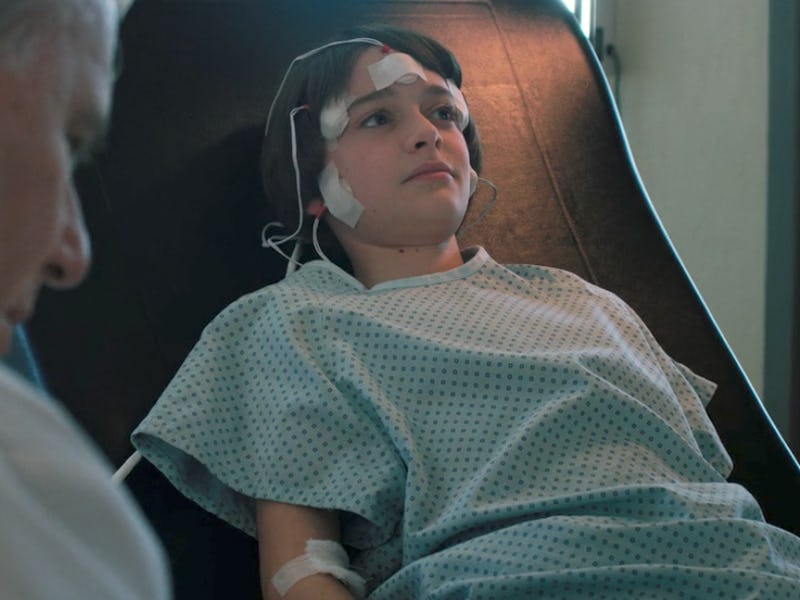Anniversary Effect in 'Stranger Things 2' Is a Real Psychological Reaction

It’s Halloween in Hawkins, Indiana, where Stranger Things 2 unfolds. In just a few months it’ll be Christmas, the season when Will Byers and his crew first made contact with the horrifying Upside-Down in season one. Will hasn’t forgotten it: As winter approaches in the first episode of the new season, Will begins slipping back into the Upside-Down more and more frequently, forcing his mom to bring him to a psychiatrist.
Warning: Spoilers for Stranger Things 2 ahead.
After running a series of tests on Will, the unnamed psychiatrist tells Joyce Byers that her son is experiencing the “anniversary effect,” a psychological phenomenon that causes bad memories to bubble up around the anniversary of an event.
“We’ve seen this with soldiers. The annivesary of an event brings back traumatic memories. Sort of opens up the neurological floodgates, so to speak,” he says.
We may not know the true intentions of this psychiatrist, but Joyce and Chief Hopper can rest assured he’s got his science straight. The anniversary effect, sometimes referred to as the “anniversary reaction,” is a real psychological phenomenon that usually plays out just as the psychiatrist described: Around the anniversary of a traumatic event, some people are confronted with an unusually high number of memories of their trauma. What the psychiatrist seems to be implying in Will’s case is that, as the holidays approach, there may be more psychological cues triggering memories of his first foray into the Upside-Down.
Word's still out on whether this psychiatrist can be trusted.
One theory explaining why this happens is rooted in the way that traumatic experiences are stored in our memory. Here’s what psychologists at the United States Department of Veterans Affairs, which deals with many soldiers experiencing the anniversary effect, have to say about it:
[Traumatic] memories contain specific information about the dangerousness of an event so that people will seek safety and protect themselves from similar harm. The memory provides information about what the individual should be afraid of, how he or she should perceive such situations, how to feel in that situation, and what to think.
In other words, a memory of a frightening situation also contains information about how you reacted when you were frightened — which explains why the symptoms of the anniversary effect mirror those of the reaction to the initial event. Some common symptoms include grief and sadness, avoidance of memory-triggering stimuli, negative changes in cognition and mood, flashbacks, and feeling nervous or on edge. The Stranger Things 2 psychiatrist notes them all — nightmares, personality changes, increased irritability, and lashing out.
In the show, Will seems to be experiencing many of these symptoms — most notably the flashbacks. His mood is noticeably different, too, and he appears withdrawn and terrified. In his meeting with the psychiatrist, he says that his sudden returns to the Upside-Down make him feel “frozen — like how you feel when you are scared and you can’t breathe or talk or do anything.”
Things are only going to get worse for Will as the anniversary of his trip to the Upside-Down approaches.
The psychiatrist’s advice to Joyce and Chief Hopper for dealing with Will’s worsening symptoms is frustratingly passive: “Just treat him normally.” Acknowledging that the science community is “still learning” — the show is set in 1984, after all — he says the best thing to do is be patient, let Will lead the way, and avoid pressuring him to talk. Scientists now know a little more about dealing with PTSD and the anniversary effect, and they suggest it can be helpful for people who live with PTSD to keep themselves distracted and occupied as the time of the anniversary approaches to prevent their minds from being filled with memories of the event.
Unfortunately for Will, the Upside-Down seems to encroaching on his small town more quickly than ever, so riding out his anniversary in a safe zone is not likely to be an option for him.